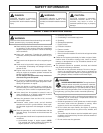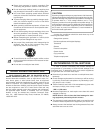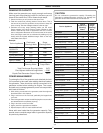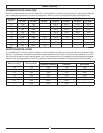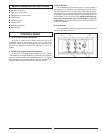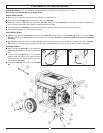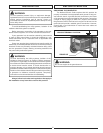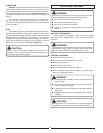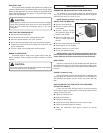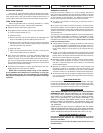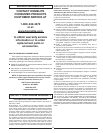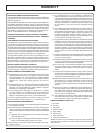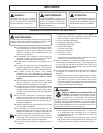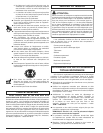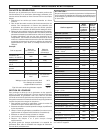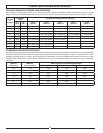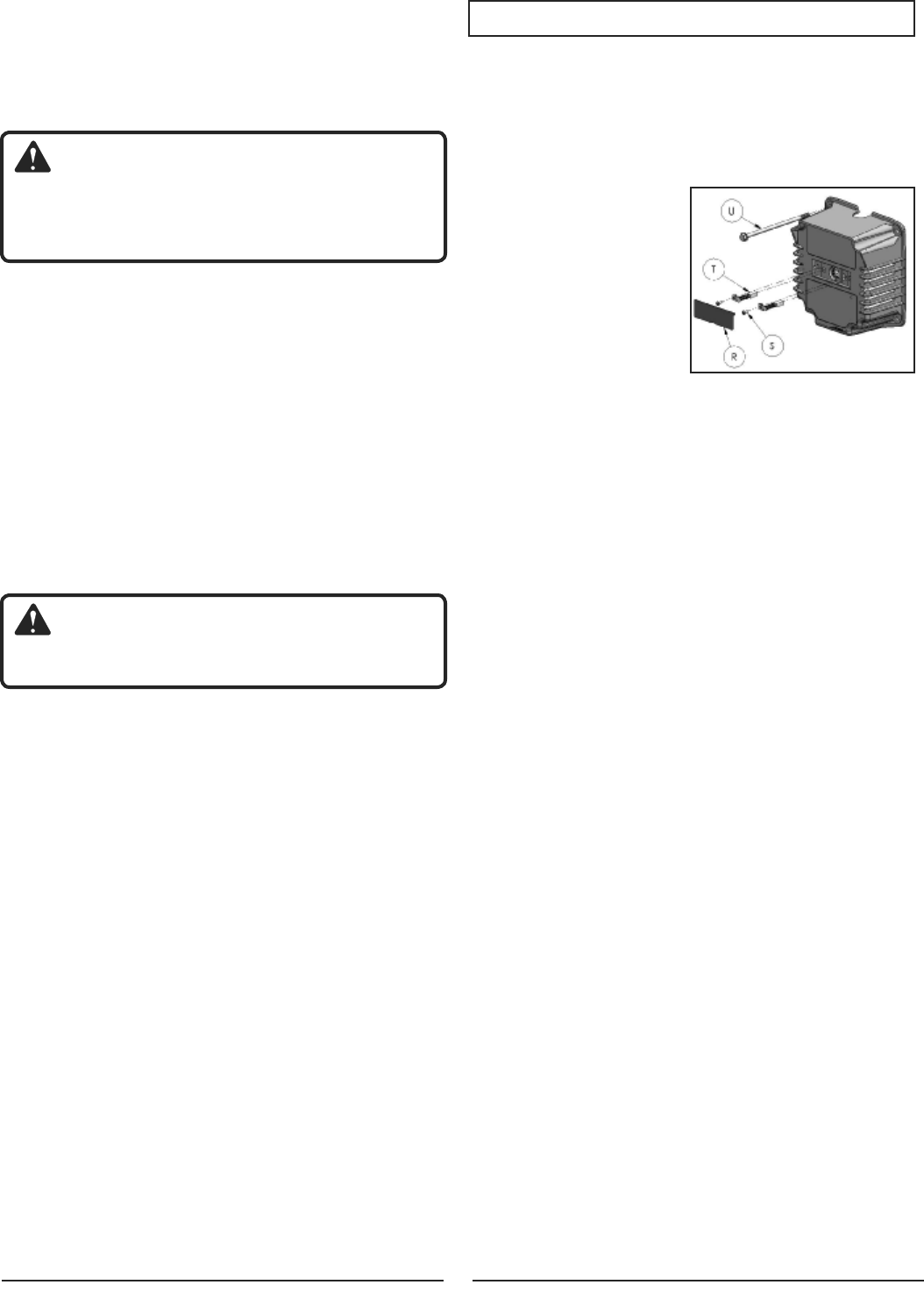
11
APPLYING LOAD
This unit has been pretested and adjusted to handle its full
capacity. When starting the generator, disconnect all load. Apply
load only after generator is running. Voltage is regulated via the
engine speed adjusted at the factory for correct output. Read-
justing will void warranty.
CAUTION:
When applying a load, do not exceed the maximum wattage
rating of the generator when using one or more receptacles.
Also, do not exceed the amperage rating of any one
receptacle.
SHUTTING THE GENERATOR OFF
Remove entire electrical load.
Let the engine run for a few minutes without load.
Move the engine switch to the “OFF” position.
Do not leave the generator until it has completely stopped.
Close the fuel shut off valve if the engine is to be put in stor-
age or transported.
If cover is used, do not install until unit has cooled.
BREAK-IN PROCEDURE
Controlled break-in helps insure proper engine and gen-
erator operation. Follow engine procedure outlined in engine
manual.
CAUTION:
Do not apply heavy electrical load during break-in period (the
first two to three hours of operations).
MAINTENANCE
GENERATOR: BRUSHES (BRUSH TYPE UNITS ONLY)
The brushes in the generator should be inspected once
every year for chips and cracks. Brushes should be replaced
when they are worn to 1/4 inch (7 mm).
NOTE: Replace brushes in sets only, never separately.
INSPECTING THE BRUSHES:
Remove cover plate (R).
Remove 4 stator bolts (U)
and endbell.
Remove screws holding
the protective plate on the
inside of the endbell.
Disconnect the green (–) or
blue (+) brush wires from
the tab.
Remove brush mounting screws (S).
Slide brushes (T) from holders.
Replace if worn to 1/4 inch (7mm).
Do not over tighten screws.
NOTE: Replace only with brushes specified in parts list.
Other brushes may appear to be identical but may have com-
pletely different mechanical and electrical characteristics.
HEAT SHIELD:
Inspect to ensure that all heat shields and heat deflectors
are intact and in place. Do not remove any parts or modify parts.
Removing or modifying parts could cause serious damage to
the unit.
ENGINE: Carburetor Icing
During the winter months, rare atmospheric conditions may
develop which will cause an icing condition in the carburetor. If
this develops, the engine may run rough, lose power, and may
stall.
QUICK STARTING TIPS FOR UNITS THAT HAVE BEEN
SITTING FOR AWHILE:
If your unit has been sitting around for a long time period
and is hard to start, try doing some of these easy steps before
calling Customer Service.
Check the lubricant level.
Replace the old fuel.
Change the spark plug.
Check the fuel lines. Make sure the fuel valve is open.
Check all generator parts for integrity.
Clean the carburetor. (See engine manual for service
centers)



